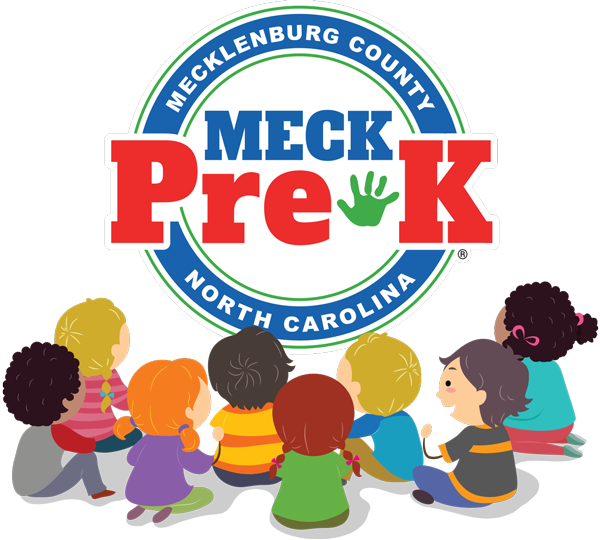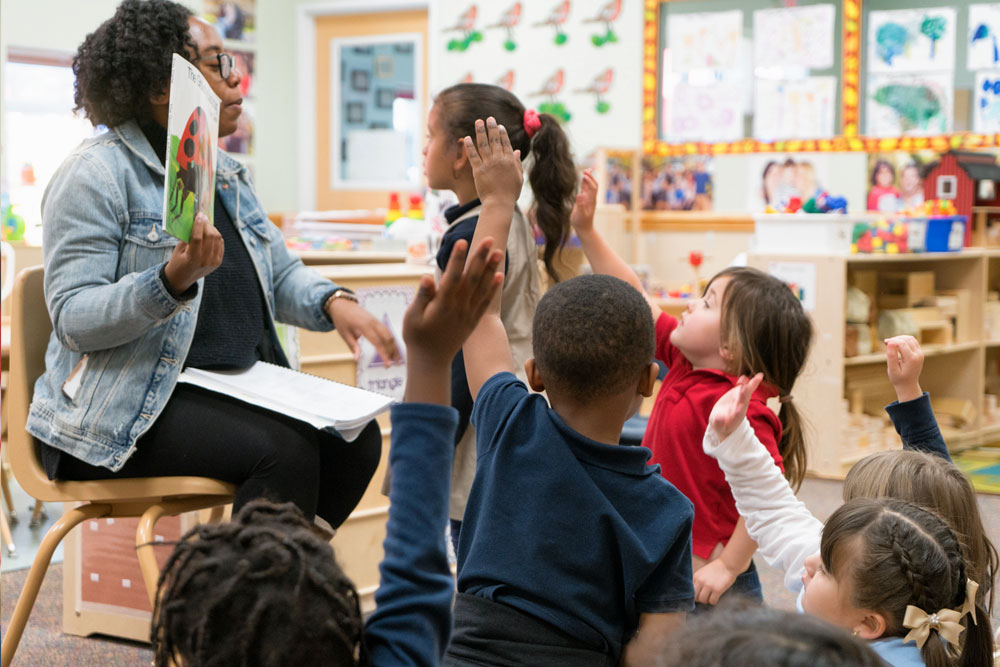What Do Children Learn in Pre-K?
Pre-k offers children many new opportunities for learning and friendship. Meeting other kids and making friends is part of the fun, though they also develop some practical skills in the process. Here are a few ways that kids learn from a pre-k program and how to help foster their growth.
Socialization
One of the best ways children can grow is by spending time with their peers. Your child can learn valuable lessons about playing together, sharing toys, group dynamics and much more. While some kids are already versed in socializing with brothers or sisters at home, others have yet to learn how to play nicely in pairs or groups. Pre-k paves the way with life skills from an early age.
Cooperation
Socialization goes hand in hand with cooperation, which is another great tool for kids. Learning how to take turns, problem-solve and compromise are important skills at any age. By practicing how to get along and behave in a group setting, your child will be ready to carry these skills forward into kindergarten and beyond.
Independence?
At four and five, kids are still very young, but they can start to develop independence in small ways for gradual growth. For example, pre-k classes teach kids how to get ready to go outside by putting on their shoes and jackets, putting their things away and doing small things for themselves. They also get the chance to experience snack time with others without relying as much on adult assistance. All of these things start to show children how much they can do for themselves for greater independence.
Confidence
By taking classes with others, children begin to develop their confidence and sense of self. Part of this stems from independence and pride in their own accomplishments. Making friends and exploring a new environment are also part of the equation. Whether it’s bringing home a picture or working together with a classmate, pre-k lets kids feel good about themselves in small yet impactful ways.
Responsibility
Young children rely heavily on adults, but pre-k and later education teach them responsibility. Kids learn how to put their toys away, keep their desks neat, and tidy up before going outside for recess. As with other pre-k skills, the level of responsibility learned from these simple daily tasks is completely age-appropriate.
Creativity
Whether it’s painting a picture or playing house with other children, kids learn so much about creativity in the classroom. Arts and crafts let them use their imaginations on a daily basis and dream up all kinds of magical situations. Teachers help balance the real with the creative, and honing their artistic expression is definitely a plus.
How Can I Help Support My Preschooler?
As parents, we want to see our children thrive from an early age. We want to help our kids as much as possible, and education is one of the most effective ways. If you’re thinking about enrolling your child in a pre-k program but don’t know where to start, consider these at-home strategies for a smooth transition.
Let Them Play
Pre-k involves a lot of playtime, but there’s still fun to be had at home. Letting your kids romp around lets them use some of their boundless energy and strengthen their imagination. As adults, we sometimes forget how valuable play can be! What seems like fun and games is actually an important part of their physical and mental development.
Crank It Up
It’s safe to say many adults don’t sing while they’re doing chores, but for kids, music can bring fun to household tasks. Try to get them interested in routine activities by making up a song or by playing some kid-friendly music during the process. Think of it this way: some athletes listen to music while training to stay focused. Why not do the same at home to motivate kiddos? Spread the fun and play some tunes for happier campers at home.
Set a Routine
One of the things pre-k classes do best is provide comfort and stability. You can adopt some of these ideas at home. Routines teach kids what to expect and how to behave in return. For example, chaotic bedtimes become calm after establishing a routine. By reinforcing what they’ve already learned at school, you’ll help simplify their home life, too.
Make It a Game
Children have the uncanny ability to turn anything into a game, but most adults never give it a second thought. By the same token, a simple task for an adult can become infinitely more dramatic for younger kids. The trick is speaking their language by making even the ordinary fun. Give your child 30 seconds to pick up as many toys as possible or a reward for eating every bite on their plate. Who knew chores could be so easy?
Give Them Notice
As a parent, you may find that your child is reluctant to leave a friend’s house or get ready for bed. Kids are faced with similar transitions at school, too. Help your preschooler adjust by letting them know what’s coming next a few minutes ahead of time. For example, say, “You have five more minutes to play before we have to go.” Usually, kids are more likely to cooperate if they know what’s coming.
Final Thoughts
Pre-k programs teach children lots of valuable skills from socializing to self-esteem building. While no two schools are the same, the core concepts being taught in the classroom can be mirrored at home. Integrating play, music, routine and transitions as parents can help these lessons stick. Don’t forget to enroll your child in Mecklenburg County’s FREE MECK Pre-K program for a fun and fruitful year ahead!

